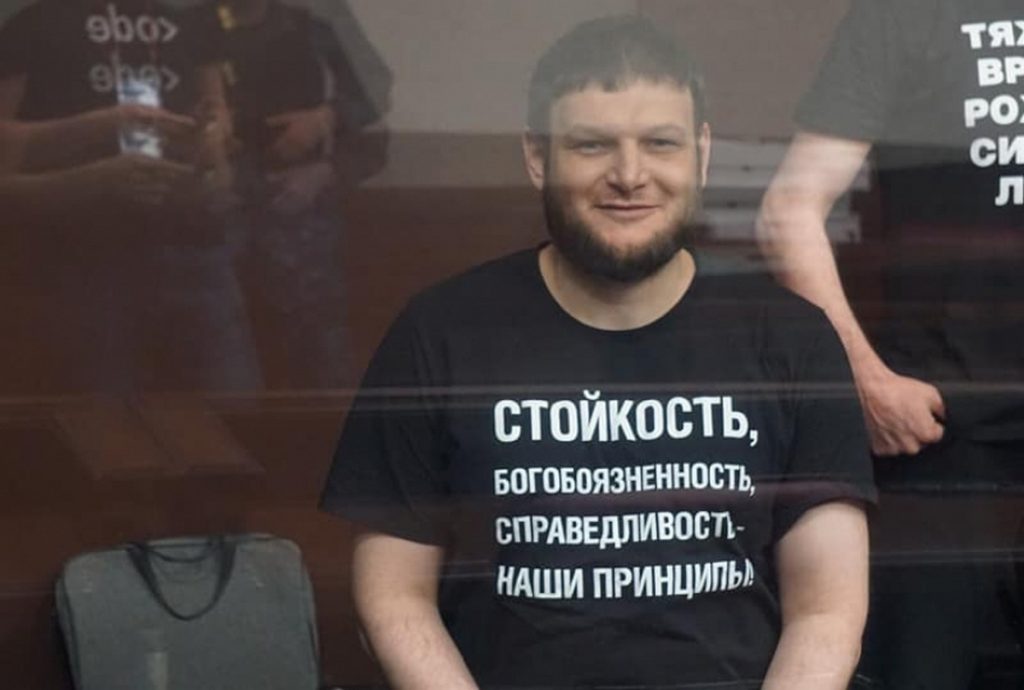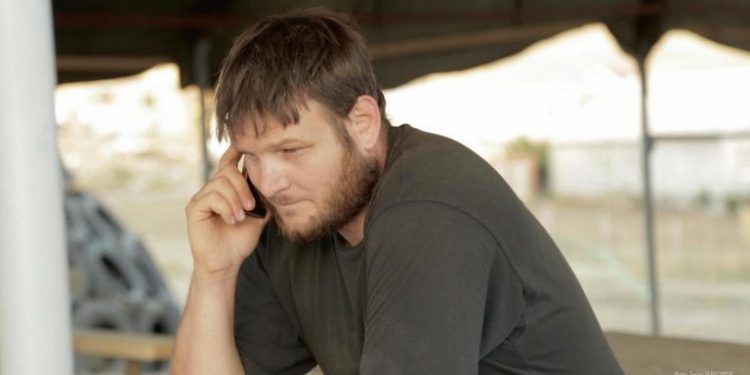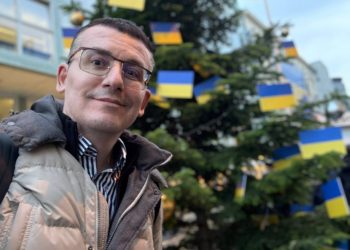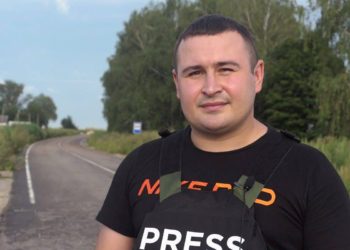After the annexation in 2014, Crimean collaborator and russian “head of Crimea” Sergey Aksyonov, intimidating journalists, Ukrainian and Crimean Tatar activists, said: “Now we have Siberia!” It can be seen that Russia has not known another way of using the wealth of Siberia since the days of the tsarist “prison of nations”…”
Remzi Bekirov was born in the city of Bekabad, Uzbekistan, on February 20, 1985. At the age of seven, he came to Crimea with his parents, who had returned from deportation. He graduated from high school, and in 2002, he entered the Faculty of History of Tavriiskyi National University. He took part in many contests and Olympiads in history and won prizes. He graduated from tour guide courses and guitar courses. Remzi did not work by profession: after the temporary occupation of Crimea by Russia, teaching “old” history became utterly impossible. Instead, he worked as a builder. In 2011, he married Khalide. They have three children.
After the annexation of Crimea, he became a citizen journalist for Crimean Solidarity and, later, a correspondent for Grani.ru. He filmed all the high-profile cases on the peninsula: covered human rights violations in Crimea, streamed the Vedzhie Kashka and Hizb ut-Tahrir cases, as well as the search in Kamiyanka. He is also the author of the idea of collective assistance to the families of Crimean political prisoners. After his appeal, people gathered to help Teymur Abdullayev‘s family. The Crimean Tatars call it talaq, that is, toloka in Ukrainian. Teymur ended up in prison, and his wife and five children were left to live in one room – where they cooked, ate, slept, and did their homework. The rest of the premises accommodated y a group of dedicated Crimean Tatars from all over Crimea. Remzi lived in much worse conditions. But it was important for him not to leave his friend in trouble.
On March 28, 2019, Remzi Bekirov was arrested on the second day after the house was searched. On March 27, he was not at home; he and his friends went to the Rostov Oblast to deliver aid to the arrested Crimean Tatars. He was not accused of being a citizen journalist because this is not a crime anywhere in the world except in Crimea. Therefore, the occupiers insidiously falsified a “case” about “terrorism” in the case of Hizb ut-Tahrir. He was charged with organizing the activities of a terrorist organization and preparing to seize power. On March 10, 2022, he was sentenced to 19 years in prison. Remzi commented this saying: “Russia persecutes Crimean Tatars, Crimean Muslims for their dissent. Out of spite to think the way the government says, out of spite to be enslaved people on our land. And on top of that, according to the investigation, my crime is that I dared to cover this lawlessness, having first become a citizen journalist and later a professional correspondent.”

The case of the “second Simferopol group Hizb ut-Tahrir” or “case 25,” as journalists call it, is the largest criminal trial involving political prisoners in occupied Crimea. Among those involved in the case are Crimean Tatar activists, journalists, and human rights defenders. They are accused of involvement in the Hizb ut-Tahrir organization, which is banned in Russia. But, in fact, they are being persecuted for their journalistic activities, activism, citizenship, and disloyalty to the occupation authorities. According to human rights organizations, more than a hundred citizens of Ukraine are currently in detention facilities and prisons in Russia and occupied Crimea for political reasons. Eighty-four of them are Crimean Tatars, who are unjustly accused by the terrorist country of… terrorism, which is a paradox!
As earlier reported, the Supreme Court of the Russian Federation recognized the Islamic political party Hizb ut-Tahrir as a terrorist organization at a closed court session on February 14, 2003. This religious organization operates legally in Ukraine, in particular in the temporarily occupied Autonomous Republic of Crimea and many other states. Contrary to international humanitarian law, Russia uses its criminal legislation in Crimea. Human rights defenders believe that the decision of the Supreme Court of the Russian Federation was made unfounded with a violation of transparency and equality of the parties since only the prosecution party, namely the FSB, participated in the closed process. The organization’s representatives were not able to present their position to the court. At the same time, in most countries of the world, the organization operates without restrictions at the level of national legislation. In Ukraine, the party’s activities are not prohibited; the organization’s activists were involved in publishing a newspaper, could openly talk to the mass media, and hold mass public events.
The Memorial human rights center recognized Remzi Bekirov as a political prisoner, and the international non-governmental organization Reporters Without Borders recognized him as a journalist persecuted for his professional activities.

 THE NATIONAL UNION OF
JOURNALISTS OF UKRAINE
THE NATIONAL UNION OF
JOURNALISTS OF UKRAINE
















Discussion about this post